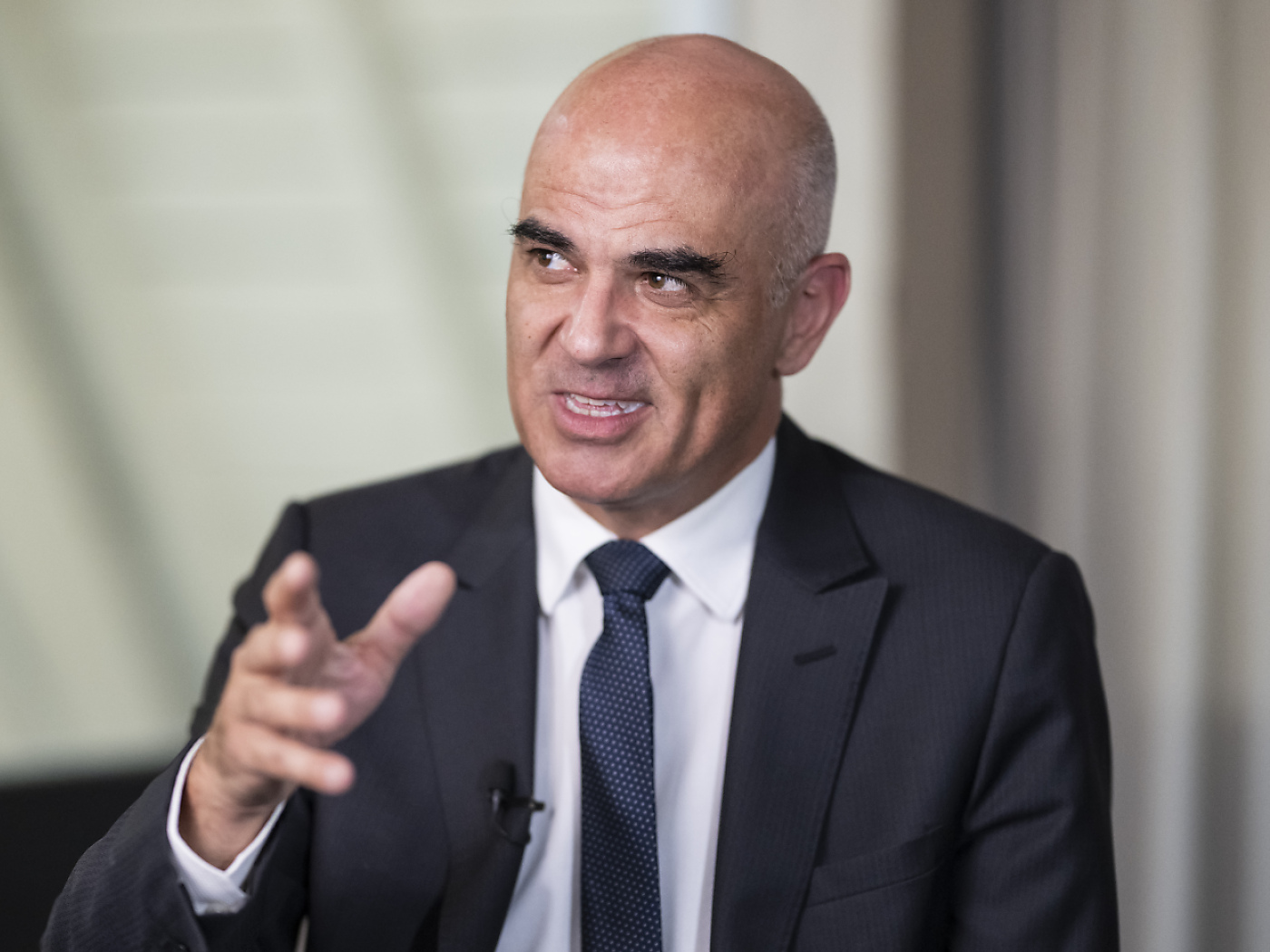
Ex-Swiss health minister re-lives Covid death threats

Stress, death threats and confusion: former Swiss health minister, Alain Berset, has opened up to public broadcaster RTS about the Covid pandemic and subsequent nationwide lockdowns.
+ Get the most important news from Switzerland in your inbox
Five years ago, on March 13, 2020, the government imposed its first pandemic lockdown on the country. Berset was front-and-centre of the drama as the public face of these decisions.
“In the beginning, there was a kind of shock,” said Berset, who was Interior Minister with a mandate for health between 2012 and 2023. “You could tell me something with certainty at one point and then say five hours later the opposite was true.”
“The only option in that situation was to say what you know, to say what you don’t know, and that things can change.”
“At first, the voice of science wasn’t really audible, nor was it well coordinated,” he added. But the creation of task forces improved coordination by March 2020.
The first few months of the pandemic were chaotic, involving non-stop work, recalled Berset. “I didn’t know if I could withstand such brutal pressure. I couldn’t imagine it was possible to endure it,” he said.
As health minister, Berset went to great lengths to avoid contracting Covid, avoiding all unnecessary contact for months. “I didn’t want to get sick because it could signal that I wasn’t available to manage the crisis. That’s exactly what was expected of me.”
The lockdowns and controversy over vaccines stirred up negative reactions from some sections of the population. Berset required around-the-clock personal protection for several months after receiving death threats.
“It was a crisis that stressed the population. Not everyone reacts to this stress in the same way,” he said. “Some people become violent, which is really quite spectacular for a country like Switzerland.”

More
Swiss prosecutors to close ‘Covid leaks’ probe
Adapted from French with DeepL/mga
This news story has been written and carefully fact-checked by an external editorial team. At SWI swissinfo.ch we select the most relevant news for an international audience and use automatic translation tools such as DeepL to translate it into English. Providing you with automatically translated news gives us the time to write more in-depth articles.
If you want to know more about how we work, have a look here, if you want to learn more about how we use technology, click here, and if you have feedback on this news story please write to english@swissinfo.ch.

In compliance with the JTI standards
More: SWI swissinfo.ch certified by the Journalism Trust Initiative




























You can find an overview of ongoing debates with our journalists here . Please join us!
If you want to start a conversation about a topic raised in this article or want to report factual errors, email us at english@swissinfo.ch.